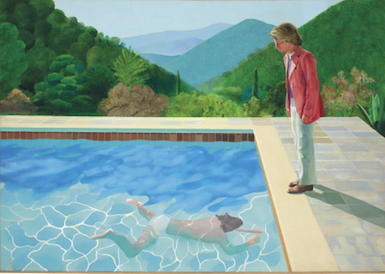It is no secret that people love water. From playing in pools to days at the beach to buying sound machines that mimic the sound of ocean waves, humans feel an affinity to water. What many researchers are coming to find is that water is not only pleasant to be around; it can even be therapeutic.
This is not a new age idea. The Centers for Disease Control and Prevention reports that water-based exercise can help individuals with a wide range of chronic illnesses, from arthritis to heart disease to fibromyalgia. Meanwhile, a more wide-ranging research paper published in the North American Journal of Medical Sciences on the various studies in which hydrotherapy was employed found that there is evidence to suggest that it can be used to aid in pain management, improve immunity, and to treat fatigue, anorectal disorders, obesity, hypercholesterolemia, hyperthermia, and even psychological disorders like anxiety.
Dr. Samoon Ahmad of the Integrative Center for Wellness is not surprised by the latter finding. “I believe that hydrotherapy can benefit patients with any number of mental illnesses,” he said. “I have found that a more holistic approach to wellness, one that puts a greater emphasis on changes in lifestyle and reducing stress hormone levels through exercise or meditation can have a more significant impact on many of my patients’ well-being than therapy and medication alone. There is no doubt that the meditative effects of hydrotherapy are beneficial to patients suffering from anxiety or PTSD or even depression.”
Dr. Ahmad is not alone in believing that this kind of therapy has the potential to improve well-being. In his 2014 book, “Blue Mind,” California-based biologist Wallace J. Nichols uses anecdotes and hard data to show the clear benefits that being near, within, or under water can bring patients. For example, brain imaging shows that when humans come into contact with water, the neurotransmitters dopamine and oxytocin are released. By increasing the levels of these two hormones in brain, subjects’ moods improve dramatically. Why? Because our bodies are 60% water and our brains are 75% water, so when we feel, hear, or see water we experience feelings of familiarity and comfort.
Dopamine and oxytocin are not the only neurotransmitters affected by the presence of water. Nichols also observed that water can reduce levels of the “stress hormone” cortisol, which can lead to clearer thinking and feelings of tranquility.
As more evidence links water therapy to well-being, the popularity of this kind of treatment is only expected to grow. Nichols believes that water as medicine will be a mainstream concept within the next decade. With the growing popularity of research institutions like Europe’s BlueHealth, which studies how water therapy can improve the lives of people living in urban areas, his prediction may prove to be too conservative.
BlueHealth is not the only organization exploring the benefits of water therapy. Deptherapy is a charity in the UK that offers adaptive scuba-diving for veterans who have suffered mentally and physically from their service. The rehabilitative properties of scuba-diving for people who suffer from Post Traumatic Stress Disorder have proven so effective that Deptherapy was received the prestigious Soldiering On Award, which recognizes the outstanding achievements of organizations and individuals responsible for improving the lives of those within the United Kingdom’s armed forces community.
Sea Sanctuary is another UK-based charity that uses the power of sailing to improve the lives of patients. They have found that it can promote emotional resilience and mental health, and that 84% of those who have worked with the group have reported an increased sense of wellbeing.
Deptherapy and Sea Sanctuary help hundreds of people a year, many who report that they feel healthier and happier. They are just two of the organizations helping people discover the healing qualities of water, but their belief in the power of the Blue Mind are not yet shared globally. It will take a more concerted effort on the part of medical professionals and academics to spread the word.


0 Comments on "Diving into Water Therapy"